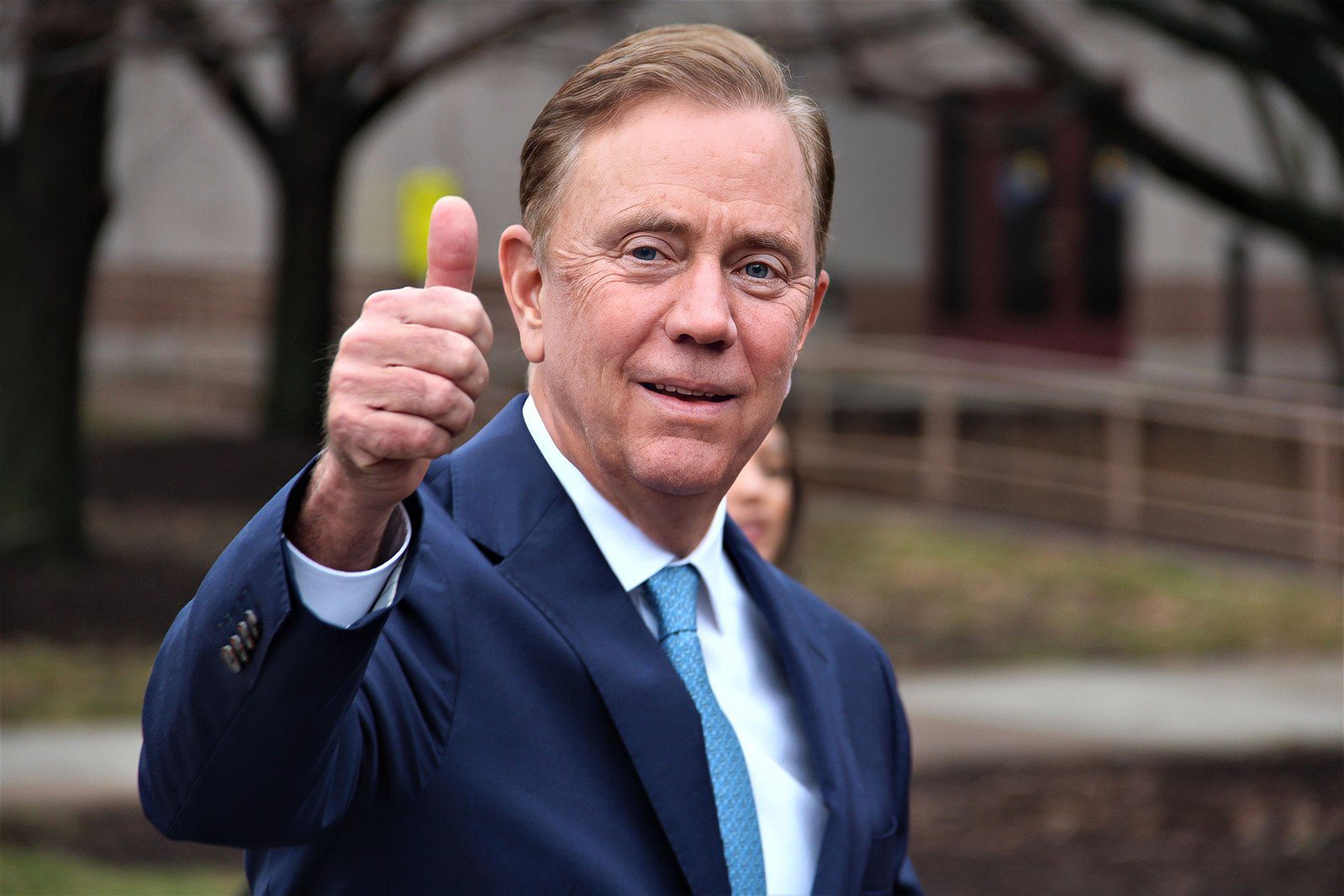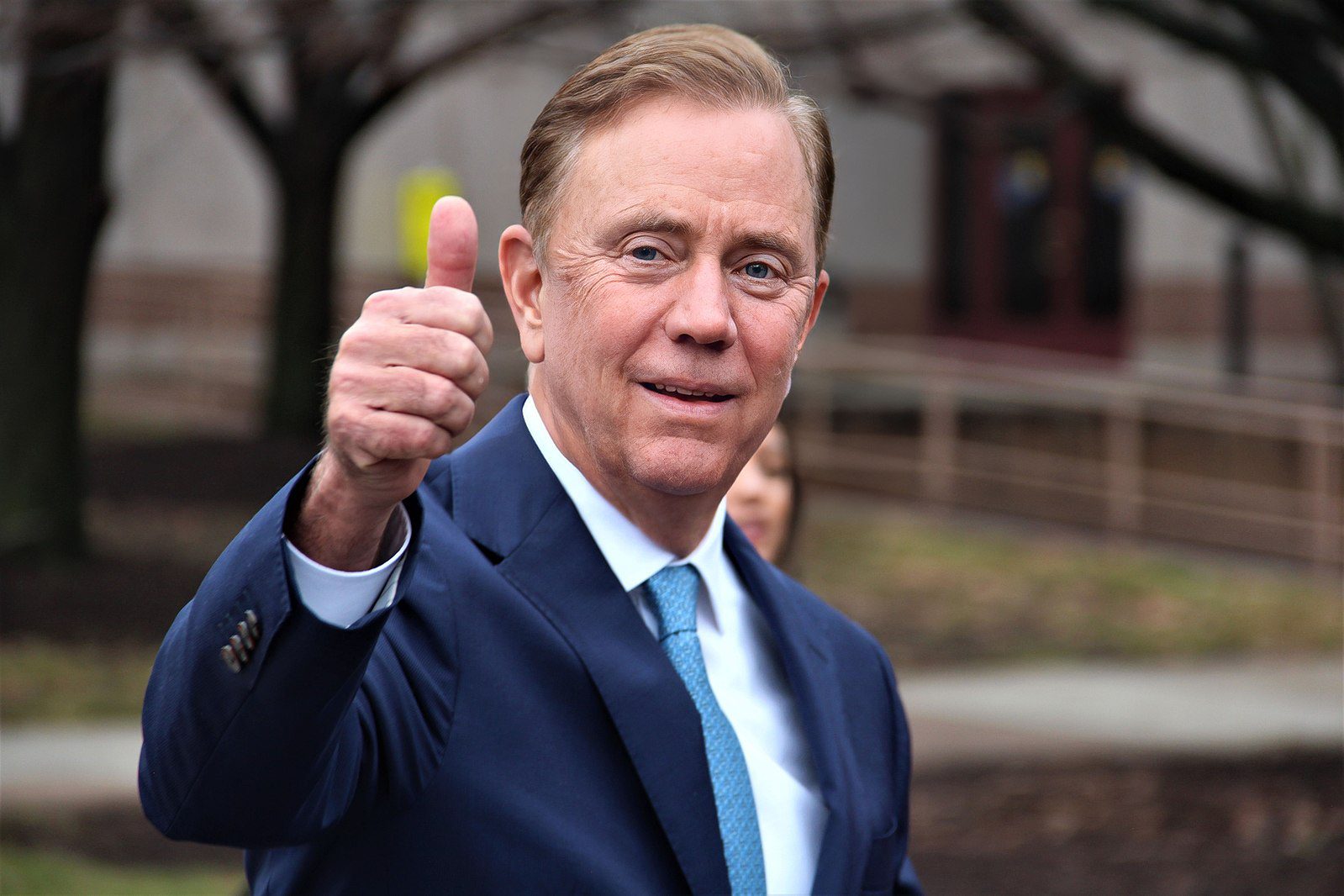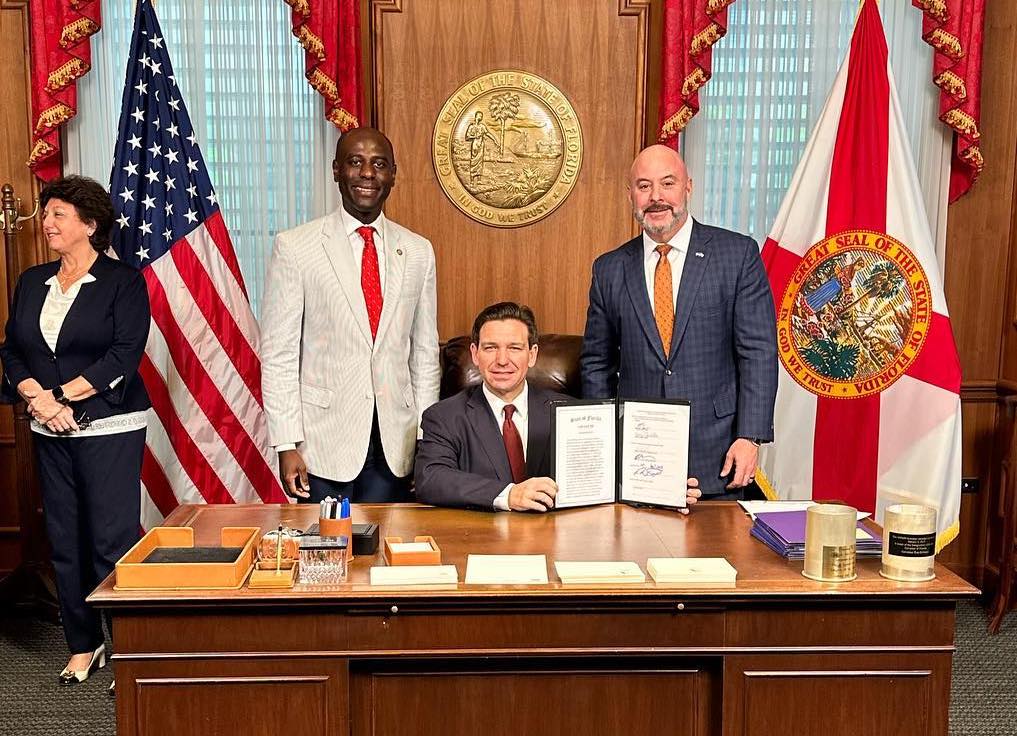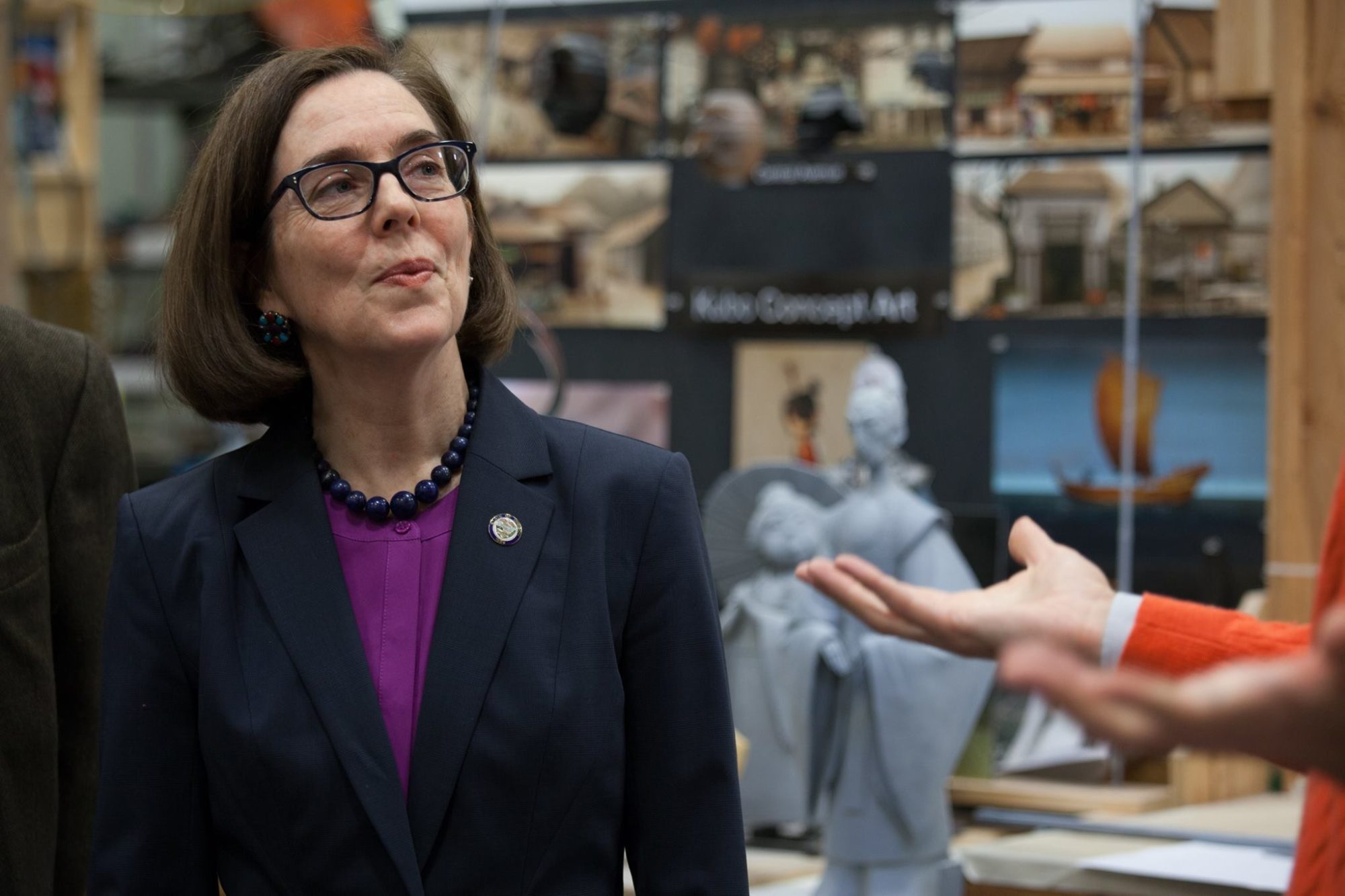The Death Penalty on Trial in Louisiana
Petitions filed on behalf of dozens of people on death row are asking the governor for mass clemency, and showcasing the injustices that undergird capital punishment.
Piper French | July 17, 2023
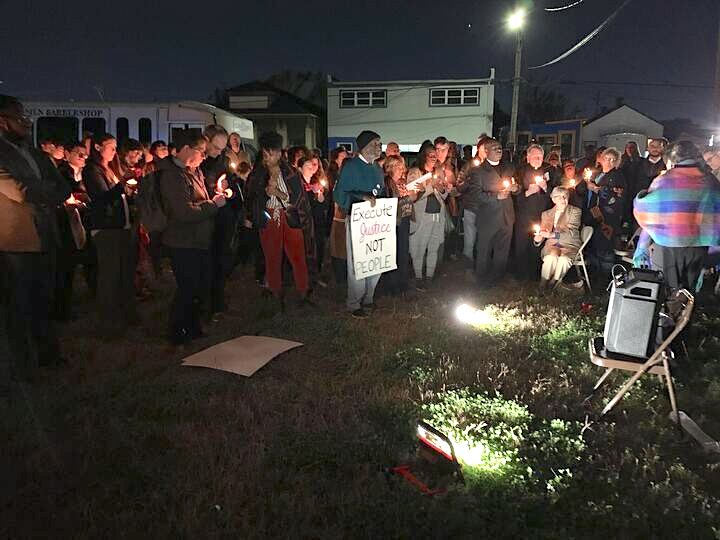
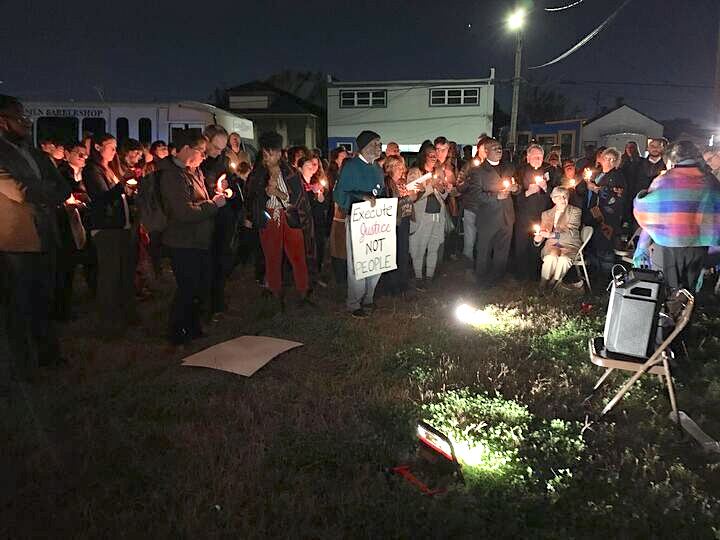
LaDerrick Campbell has an IQ in the 60s. His defense counsel described him as “the most profoundly mentally ill client” they had ever encountered. Daniel Blank’s confession was coerced; one of the people he was convicted of assaulting explicitly stated that Blank was not his attacker. Jeremiah Manning suffers from a profound intellectual disability, and one of the sons of the woman he killed has testified to the state legislature that executing him will not bring his family solace. Jarrell Neal’s uncle killed two men as he waited unaware in the backseat of the car, then testified against him in exchange for a lesser sentence.
Each of these men await execution in Louisiana. A few weeks ago, 56 out of the 57 people currently on the state’s death row —including Campbell, Blank, Manning, and Neal—asked Democratic Governor John Bel Edwards to spare their lives by commuting their sentences to life without parole. Edwards, who is Catholic, recently announced he cannot square the death penalty with his pro-life views. It is one of the biggest mass clemency requests in American history, in a state where only two death sentences have been commuted in the past 50 years.
Clemency is often conceived of as a discrete and individual mercy—as an exception, the opposite of policy. On death row, we picture it as an eleventh-hour decision to spare a person’s life following efforts by advocates to highlight the tragic or unjust circumstances of their case. But here, the petitioners say that in highlighting people’s stories, they’re not trying to persuade public officials to handpick which of the 57 is most deserving of mercy.
Instead, they’re hoping to showcase the systemic disparities that undergird each of their cases. What if clemency were a form of policy, they ask—not an individual act, but a collective response to the barrage of injustices that have made the state’s death row a cross-section of its poorest and most marginalized groups?
The U.S. Supreme Court has declared that executing someone with an intellectual disability is unconstitutional, a criterion that fits 40 percent of the people on Louisiana’s death row. Thirty-nine of the 57 have been diagnosed with brain damage or serious mental illness. Three quarters are people of color, the vast majority of them Black. Many allege prosecutorial misconduct and sorely deficient legal support. “We are executing the most vulnerable people in our population,” said Calvin Duncan, an exoneree who served as a jailhouse lawyer to many on death row for about 19 of the 28 years he spent wrongfully locked up.
Time is running out. Edwards leaves office in early January, and the frontrunner to succeed him staunchly supports the death penalty. The next few months will determine whether Edwards translates his philosophical opposition to capital punishment into action by trying to speed up the process and by commuting every death sentence he can before his term is up.
The petitioners must first convince the Louisiana Board of Pardons, which must recommend cases to the governor before he can grant clemency and has already signaled the process may be lengthy, though Edwards, who has appointed the board’s five current members, can ask the board to consider capital cases in a meeting. His office did not respond to a direct question about whether he would do so
Not only is this a last-ditch effort to forestall the state executions of these 57 people—it’s also a call for Louisiana to end the use of the death penalty once and for all, in keeping with the growing number of states that have abandoned the practice. In the last six years, five state legislative attempts to repeal capital punishment have failed.
“It’s an indictment on the system,” said Cecelia Kappel, an attorney for the Capital Appeals Project, the firm that organized the petitions. “This entire system is broken, and I would want to see the death penalty in Louisiana be on trial, as opposed to our individual clients and their individual circumstances.”
Much of the debate around capital punishment focuses on wrongful convictions. Louisiana’s death row has a long history of exonerations, where people’s convictions are reversed after new evidence comes to light suggesting they did not commit the crime for which they were sentenced to die. But these clemency petitions argue that, whether the petitioner maintains their innocence or not, the underlying factors present in each case mean they should not be put to death.
Louisiana’s application of capital punishment is deeply rooted in racial bias, going all the way back to its origins: Enslaved people comprised thirteen of the first sixteen executions on Louisiana soil. The state historically consigned a high number of people to death, but there hasn’t been an official killing since 2010, when a death row prisoner waived his right to appeal his case. “We are moving away from the death penalty as a country, and Louisiana is no exception,” Robin Maher, executive director of the Death Penalty Information Center, told Bolts. In the two parishes that historically imposed the death penalty most often—including East Baton Rouge, once called Louisiana’s “official slaughterhouse” because all state executions took place there—there has been no new death sentence handed down since 2015.
Prosecutors in Louisiana have great discretion on whether to seek the death penalty, and only do so in a tiny fraction of eligible cases. Take the case of Jarrell Neal, one of Kappel’s clients, who rode along with his uncle and brother while they went to settle a drug-related dispute. According to Neal’s clemency petition, he was waiting in the car unaware while his uncle shot two people to death. But as they drove away, his uncle handed him a gun and told him to shoot at the officers pursuing them, and Neal complied.
Neal’s uncle agreed to testify against him, pled guilty to manslaughter and is now out of prison. His brother was ultimately prosecuted for second-degree murder. But for Neal himself, prosecutors sought the death penalty, even though he did not hit or injure the officers he shot at. “He was represented by one lawyer, no investigator, no co-counsel, no paralegal,” Kappel told Bolts. Neal’s defense presented no evidence, and a jury sentenced him to death after deliberating for less than two hours. “I feel tremendous guilt that my brother has had to take the fall for my uncle and me,” Neal’s brother wrote in a 2018 affidavit.
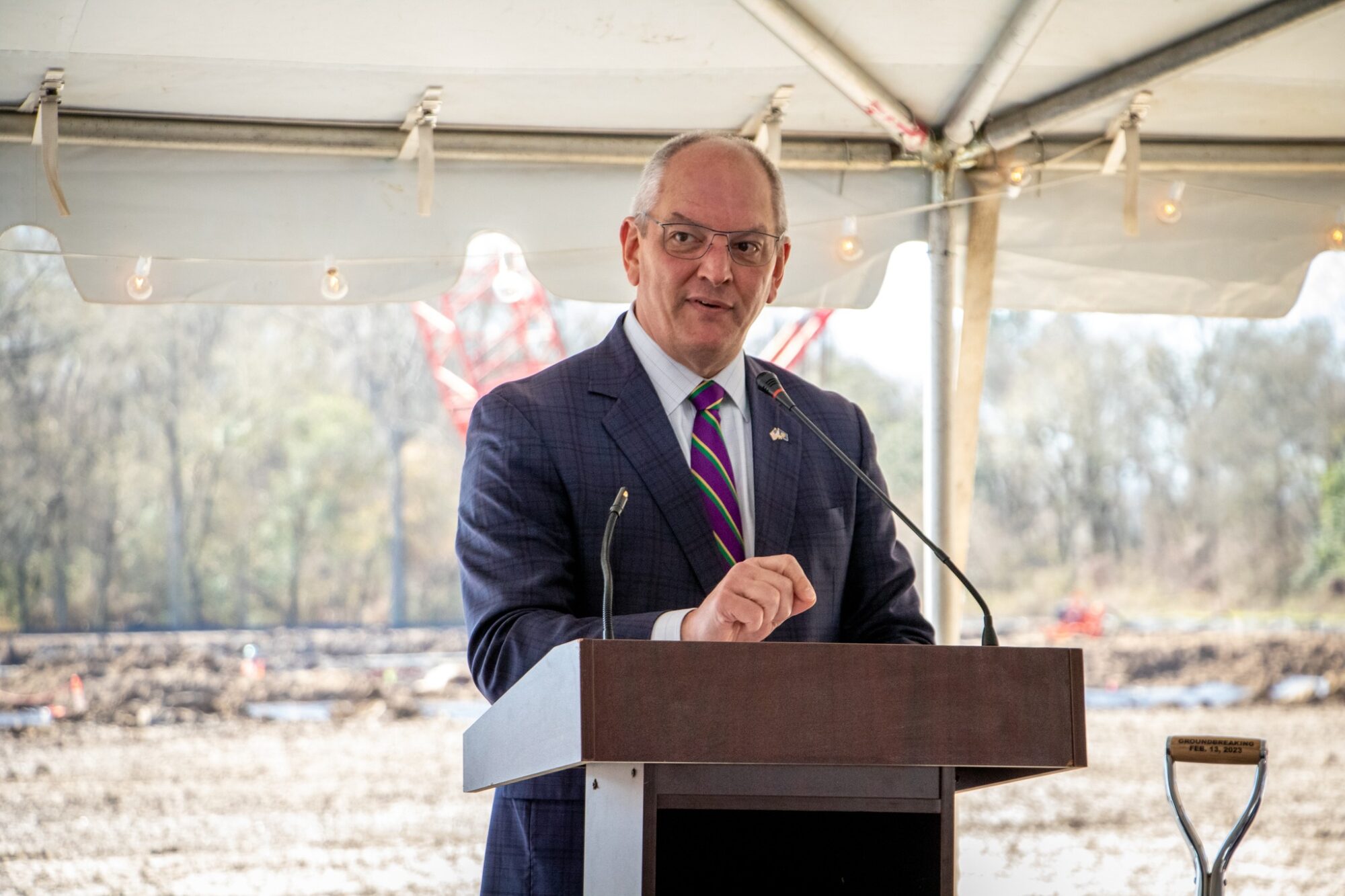

A 2015 study on racial discrepancies in Louisiana’s death penalty cases by the political scientist Frank Baumgartner found a strong connection between the race of the victim and the likelihood of a capital sentence. For instance, although Black male victims accounted for 61 percent of all homicides between 1976, the year the Supreme Court reinstated the death penalty, and 2015, only three people—none of them white—have been executed for killing a Black man during that time. Meanwhile, a person of any race was 48 times more likely to be put to death for killing a white woman than for killing a black man. The last time a white person was executed for killing a Black person was in 1752, over a half century before the Louisiana Purchase.
For every harrowing statistic you can throw out about death penalty disparities in Louisiana, Calvin Duncan witnessed it personified in the men he knew on the row. “It’s not textbook stuff to me,” he told Bolts. “I worked with those guys for 19 years…I got to see them grow up. I watched them grow old. I saw the vulnerable side of them and they all wanted something better in life.”
Working as a jailhouse lawyer at Angola State Prison after his conviction in 1985, Duncan pored over their legal files and saw evidence of innocence, abuse, poverty, trauma, disability, and insanity. He saw coerced confessions. He saw just how young many of the men had been when the state sentenced them to death. Though Duncan was never on death row, there was a lot of overlap with his own case—Duncan is Black, and he was only 20 when he was arrested for a murder he didn’t commit. He ultimately lost 28 years, five months, and two days to prison before being freed in 2011 and fully exonerated in 2021.
And for many on death row, it seemed like Duncan was the first person who had really looked closely at their legal case. “Nobody on our death row came from a family that had any money to get adequate representation,” he told Bolts.
Louisiana death row prisoners secured the right to have lawyers represent them in their post-conviction appeals in 1999, and access to pro bono legal services has also expanded significantly in the last few decades. The fact that qualified and well-resourced lawyers are now scrutinizing these cases has led to an astonishing 82 percent of convictions being overturned on appeal and at least 9 exonerations since 1999. All of this costs a lot—over $15 million a year, according to a 2019 report by Bill Quigley, an emeritus professor at Loyola Law School. The money for death penalty representation stems largely from the state’s public defender fund, hoovering up nearly 10 percent of its budget for just 11 cases in 2018 and 2019, local news site WDSU found. Capital cases “threaten the solvency of the entire Louisiana statewide public defense system,” Remy Starns, then the head of the Louisiana Public Defender Board, told the site.
“Money is the blood flow of the legal system,” Quigley, who also worked on pro bono capital appeals in the 1980s and 1990s, when none of the current infrastructure yet existed, told Bolts. “Louisiana executed quite a number of people” back then, he said, and “those people were represented in the most pathetic way possible.”
But even with access to representation, people on death row often fail to get courts to give their case a second look—even when they evince traits that should make them ineligible for execution. “There are very strict procedural requirements for when you need to raise a claim—and many of these individuals are simply unable to get back into court to present evidence of their intellectual disability,” said Maher.
Clemency is the chance to right past wrongs when every other avenue has failed. “Clemency power dates back hundreds of years, to a time when an all-powerful monarch possessed the absolute power to punish or pardon,” Maher told Bolts. “It is an act of grace, an act of mercy, but it can also be an act of justice.”
At first, many on Louisiana’s death row felt strongly ambivalent about the prospect of a mass clemency request. Clemency can reduce the consequences of a conviction, but it doesn’t change the conviction itself. Some want a new trial and a chance for release. Settling for life without parole is a bitter pill to swallow when you have evidence that you didn’t even do the crime for which you were sentenced to death. “This is not justice for them. These people have been wronged from beginning to end,” Kappel said.
As hard as it has been to conceptualize the prospect of life without parole as a win for people who never got a fair trial to begin with, Kappel said it was important to recognize the “unique opportunity” that Edwards’ admission has afforded those currently living on death row.
Clemency is generally understood as a case-by-case practice, but there is some precedent for a mass request: notably, Illinois in 2003, when the outgoing governor, Republican George Ryan, commuted the sentences of 167 people.
That process in Illinois started with a request very similar to the one lawyers made on behalf of those condemned to die in Louisiana. Lawrence Marshall, a professor at Stanford’s law school who at the time was the legal director of Northwestern University’s Center for Wrongful Convictions, recalled in an interview with Bolts the conundrum he and his colleagues faced in the lead-up to the request: “Did we go in and ask for a blanket clemency? Or did we instead cherry-pick a few particularly sympathetic cases, with the hope that those would get some real attention in ways that a blanket commutation might not?”
They ended up choosing a blanket clemency request, and Marshall’s reason echoes those of the Louisiana advocates. “It felt like a once-in-a-lifetime opportunity,” he said.
Marshall and his fellow lawyers went all out. They staged a thirty-mile relay from a prison to the governor’s mansion where 31 men who had been wrongfully convicted, sentenced to death, and later exonerated each walked a mile, carrying a piece of parchment addressed to Ryan. It garnered national press attention. Later that night, they put on a production of the play The Exonerated, which features A-list actors telling the story of wrongfully convicted people. “There was only one person watching the play, and that was the governor,” he said. “The 150 other people were watching the governor watching the play, looking for any signs into what he was thinking.”
Ryan eventually granted clemency to all 167 people on death row, even bestowing a full pardon on four. “My concern basically was if I had left office and didn’t do anything about it and woke up one morning and found some innocent person had died, I would have to live with that the rest of my life,” he said later.
Marshall acknowledged how focusing on wrongfully convicted people can scan as an “implicit endorsement” of capital punishment for the many people on death row who are guilty of the crimes for which they were convicted. Here, though, it proved strategic. “Wrongful convictions was definitely the road into his thinking. But once we got in there then we convinced him, I think, that if the system can’t get it right, as to who did it,” he said, “just the pure objective fact of who did it—How can we trust that system?”
Like Ryan in 2003, Edwards is in the final months of his gubernatorial tenure and has expressed qualms about the death penalty. But it’s hard to know whether he will take similar action for the 57 people currently on death row. Edwards, of course, is not the all-powerful monarch of yore—in fact, he lacks even the outright power that Ryan had to commute capital sentences in Illinois. The Louisiana state constitution says that the governor can only grant clemency “upon favorable recommendation of the Board of Pardons.” Even if Edwards is inclined to grant blanket clemency, he lacks the legal authority to do so to everyone who applied, Quigley said, though he could endorse a blanket approach once people’s petitions make it to his desk.
This means each person who petitioned would need to pass an initial review, undergo a Division of Probation and Parole investigation, and then attend an individual pardon board hearing before the five-member board, most likely with victims’ family members in attendance. This process can generally take as long as a year, according to the board’s executive director. The board includes two longtime state corrections employees, a former district attorney, a public defender-turned-judge, and the official victims’ advocate. If a majority of members vote to recommend commutation, Edwards can still decide not to grant it, but the reverse is not true: Edwards is barred from pardoning anyone who the board declines to endorse.
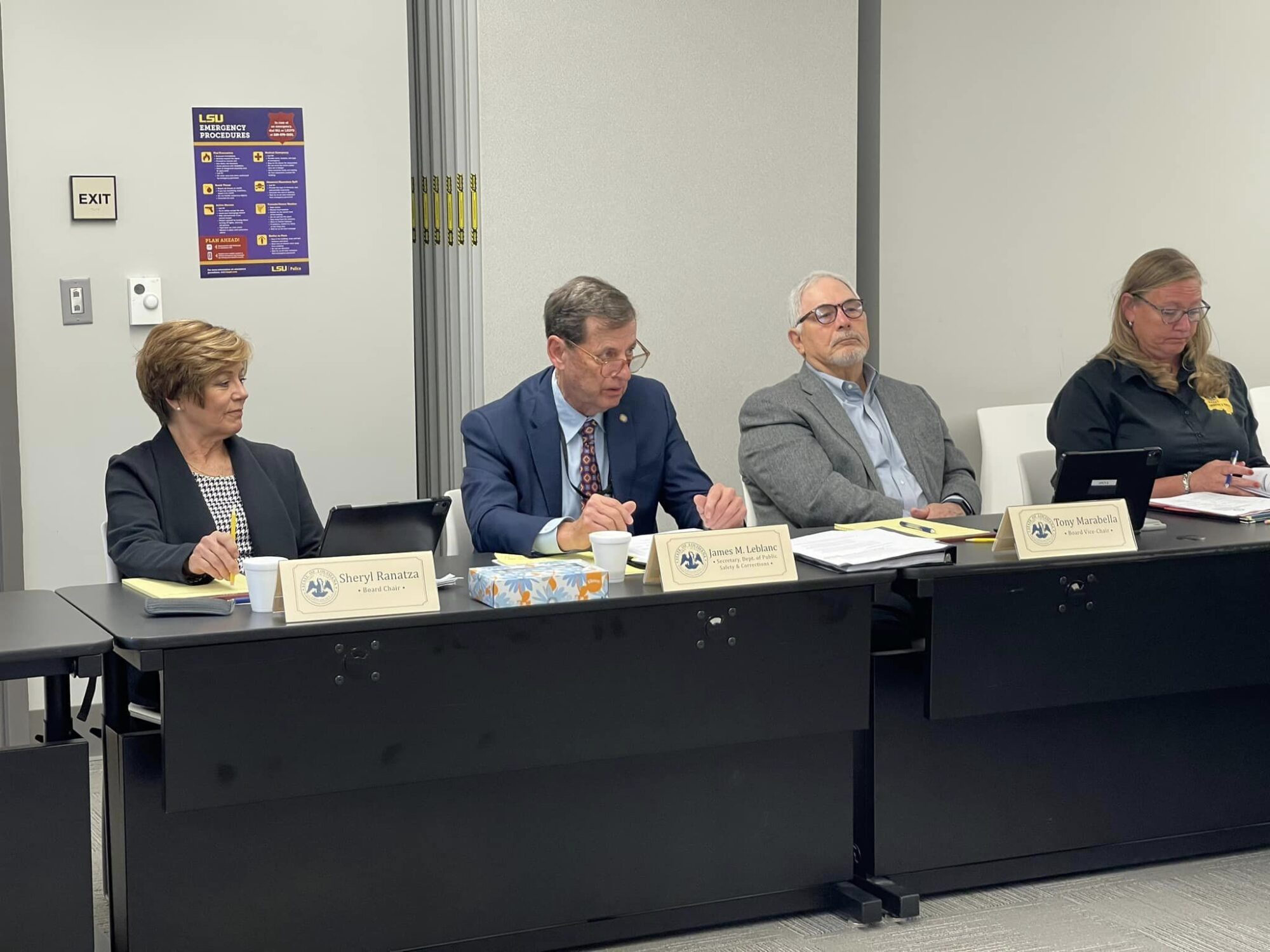

Meanwhile, at least one local prosecutor has spoken out against the mass request for being too hurried. In a letter to the pardons board, East Baton Rouge DA Hillar Moore said that the process is not allowing enough time for prosecutors to prepare opposing arguments for any pardon board hearings that may take place. He also argued that the news of the clemency applications has “caused significant confusion” for several victims’ families.
But groups like Louisiana Survivors for Reform will be trying to counter the narrative that all crime victims want vengeance for the violence perpetrated against them or their loved ones. “The death penalty feels like one of the greatest lies that is told to victims, in terms of transparency around finality, in terms of ‘closure,’” said Katie Hunter-Lowrey, an organizer with the Promise of Justice Initiative who coordinates the Louisiana Survivors for Reform coalition. She noted that capital appeals can stretch on for decades, forcing families to relive the trauma of their loved one’s murder over and over in court. “So many of the survivors that I interact with and victims’ loved ones want what happened to them to never happen to anyone else again, and the death penalty is not a deterrent. And it’s not violence prevention.”
At least two close relatives of victims oppose the execution of the person sentenced to death for their loved one’s murder; others strongly support it.
Edwards, who leaves office on Jan. 8, hasn’t yet issued any official statement on the 56 clemency petitions. According to the board’s policy for capital cases, the governor can schedule hearings and set a case on the agenda; Edwards’ office responded to Bolts’ request for comment but did not answer whether the governor would use this authority to expedite cases. On June 14, he said at a Rotary Club meeting that he would not try to influence the pardon board’s decision-making process: “I think they have to exercise their own judgment.”
Louisiana Attorney General Jeff Landry, a Republican who styles himself as tough on crime and supports the death penalty, is currently the leading candidate in the race to succeed Edwards. He has indicated that the attorney general’s office will oppose any and all clemency applications. But his gubernatorial run could also temper his hand. Kappel pointed out that Landry’s strongest opponent, Democrat Shawn Wilson, has already come out against capital punishment.
“I think that we are moving away from the death penalty, and it is not the winning campaign issue that perhaps in the past it was,” she said.
Duncan, for one, is hopeful that the increased attention to these cases that the parole hearings will bring may contribute to a shift in Lousianans’ consciousness about capital punishment—and that the board itself will recognize what he already knows to be true about the men on death row.
“I think if the public knew, if the outside world knew that these are the people that we consider fit to execute—I think they would really change their minds.”
Sign up and stay up-to-date
Support us
Bolts is a non-profit newsroom that relies on donations, and it takes resources to produce this work. If you appreciate our value, become a monthly donor or make a contribution.



